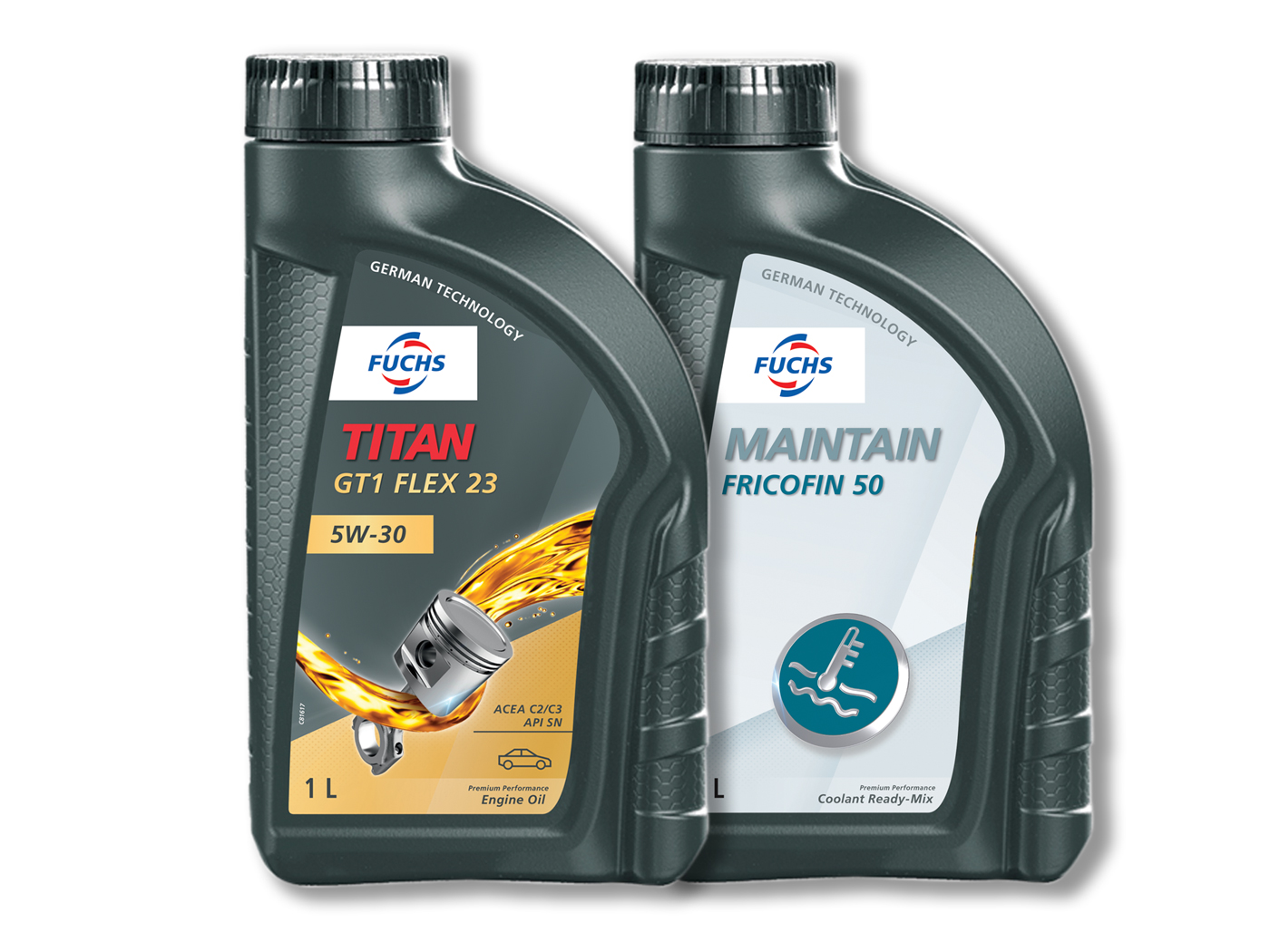Fuchs’ new packs: easy on the environment
Fuchs’ new packs: easy on the environment
Fuchs has introduced new small packs for the automotive sector that are more user-friendly and easy on the environment.
Introduced globally by the Fuchs Group at the end of last year, the new small packs for the automotive sector feature easily recognisable labels and images, pictographs, and colour codes to help customers select the correct oil, with an optimised bottle shape with a longer neck for smoother pouring. Just as importantly, the packs use recycled materials for reduced environmental impact.
“By choosing products in our new bottles, our customers reduce waste and their own carbon footprint,” comments Fuchs Lubricants South Africa sales director Andrew Cowling. The new bottles contain at least 30% post-consumer recycled (PCR) content and are 100% recyclable, while the lubricants themselves are produced in CO2-neutral plants.
This is in line with the Fuchs Group’s sustainability strategy, aimed at carbon neutrality based on the “avoid, reduce, compensate” principle. The strategy has been under development for a decade.
“Our new small packs are not just intended to be more user-friendly, but also contribute to avoiding waste and enabling materials to be recycled to reduce carbon footprints. We will continue to strive to make our packaging even more sustainable in future,” says Markus Garb, Fuchs Group vice president sustainability.
The range of lubricants available in the automotive sector is enormous, making it increasingly difficult for customers to select the correct product for a specific application. “The redesign of our small packs and labels gives you the best possible orientation and guidance. Choosing the right oil has never been easier, especially as our brand promise is that you always find the perfect high-quality oil for your vehicle,” Cowling emphasises.

Rolled out in mid-November 2021, the global campaign has repackaged the Fuchs core automotive brands into a unified range, in line with the entire group product line, including Titan, Agrifarm, and Maintain. Locally, the well-known William Penn range is also being incorporated into the Titan range. This means that the William Penn brand is now aligned with global Fuchs naming conventions.
“It is important to note that the William Penn brand is not being discontinued. It will still be on the shelf as a premium product with the same grade formulation that customers have come to appreciate, but as a Fuchs brand,” stresses Cowling.
“We now have the capability to focus all of our marketing efforts on a unified brand, which is important to ensure that the market is not confused as to precisely what products we have on the shelf. In terms of William Penn specifically, this is a transformation rather than a discontinuation of the brand.”
The automotive small packs and labels position the new Fuchs bottles as easily recognisable and make filling up that much easier. The packs are predicated on the three main principles of visibility, practicability, and sustainability. This is further refined in the three main concepts of “easy to choose”, “easy to use”, and “easy on the environment”.
As Cowling notes, “In addition, the redesigned bottles give customers peace of mind that they are buying an original Fuchs product with German technology.”
Published by
Focus on Transport
focusmagsa




